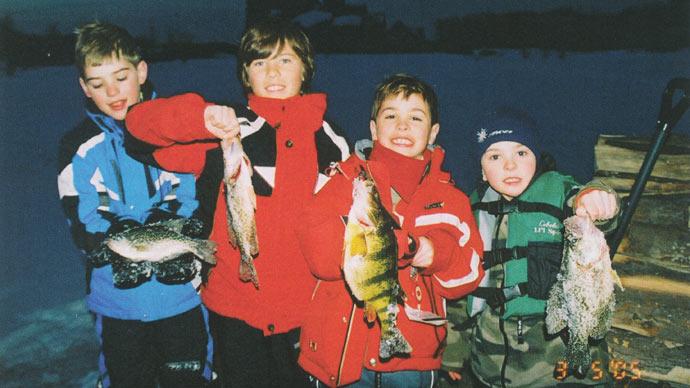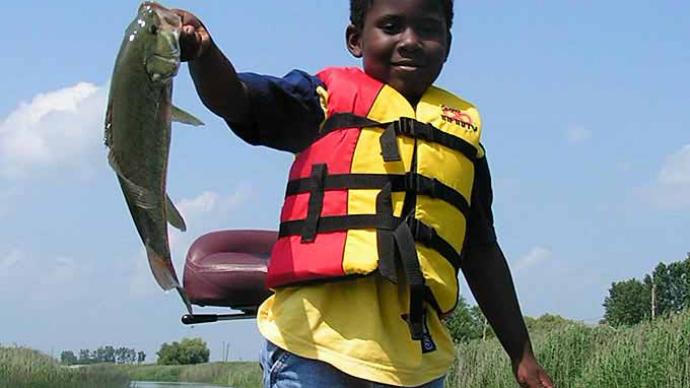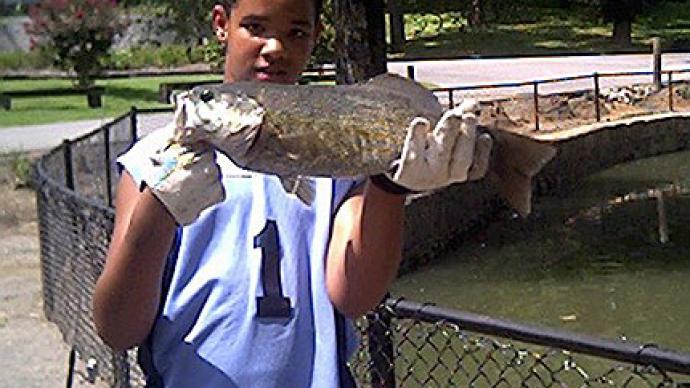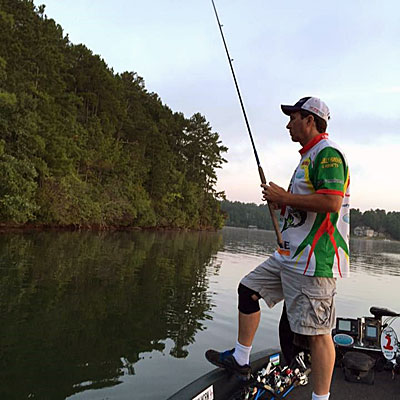
The only way to keep competitive bass fishing strong is to recruit new anglers, and the best way to do this is to take young people fishing. Do you remember when you first started bass fishing? I do, and even though it was a long time ago, I still remember being hungry for information, reading everything I could find about bass and how to catch them. Back then, computers and cell phones weren’t a thing (yeah, I’m an old timer), so magazines were the only way to go. I learned a lot by fishing in local tournaments and getting paired with other anglers, but I still learn about bass fishing daily.
For a kid, bass fishing can seem overwhelming. There is just so much to learn! It’s even harder for kids who don’t have a parent or mentor who fishes. How does a kid like that learn to fish and get the opportunity to fish? Niko Romero is lucky – his dad fishes tournaments and got him into fishing when he was about five years old. Niko started fishing tournaments at the ripe old age of eight. He fell in love with the whole thing. He says, “Learning how to catch those little green fish.” Niko fishes in High School tournaments now. In Arizona, most high schools don’t have bass fishing teams, but in other states, many do. In Niko’s neck of the woods, I mean desert, kids come from various schools to fish in the Arizona Bass Nation tournaments.
The High School Bass Nation is a seasonal club, Niko says, with dues and entry fees for the team tournaments. There are four regional High school Opens, and top teams from the state high school championships get to compete in the nationals. This year it was in Tennessee at Kentucky Lake. It all starts with team tournaments at local lakes. Each team needs a boat captain, an adult who drives the boat. If they don’t have one, the tournament committee will try to assign one to them. Volunteering as a boat captain is a great way to help these young anglers learn the sport.
Niko says the boat captain drives the boat but doesn’t give out information on spots, techniques, etc. They can advise on what the kids are doing, but the whole point is for them to make the decisions. The kids must also do community service and fundraising projects during the year, so these clubs help teach kids responsibility. Niko says he’s also met many of his best friends at the club.
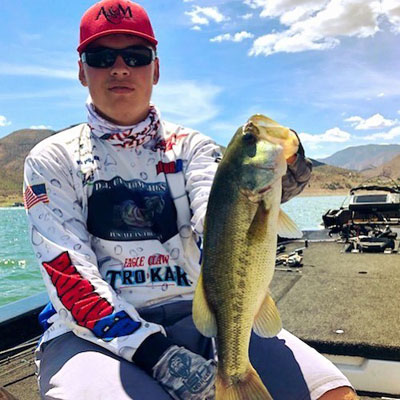
The club tournaments in central Arizona usually run about 18 boats, Niko says, with 36-40 kids fishing. There is also a Junior Bassmasters club for 7 – 13 years old. Niko found these clubs just talking to kids and looking at Facebook. The Bassmaster clubs are not the only game in town – The Bass Federation (FLW) also has junior and high school teams. All of these kids need mentors and captains. Niko says he wants to be a professional bass fisherman and wouldn’t be where he is today without the clubs. You can’t get to the Nationals without the clubs; the Nationals are where you get the “fame,” he says. Many colleges now have bass fishing teams and even scholarships for anglers. He’s looking at three such colleges right now, and Niko’s advice for young anglers is “start with the clubs, be persistent, and if you lose, don’t let it get you down – just go again.”
Being a boat captain is just one way of helping kids get started in bass fishing. I know a guy named Shannon who is a high school teacher. He teaches a bass fishing class in his spare time, then takes the kids to the ponds near his home to let them apply the skills they’ve learned. Eddie Johns of Alabama also teaches kids fishing and has created a “Blueprint for Fishing.” With this in hand, Eddie teaches fishing at local schools. The classes usually run about 45 minutes, he says, but could run to 3 hours if the kids get into asking questions. He once taught for an hour each night five days a week for six weeks – there’s plenty to learn about bass fishing!
His “Blueprints for a Successful Tournament Angler” covers everything from etiquette to map reading, tournament prep, keeping a log book, equipment, electronics, and 21 techniques for catching bass. Bass clubs regularly invite him to talk to the kids, and people find him by word of mouth and Facebook. He is also a boat captain for local kids’ fishing clubs. The rules are a bit different in the local clubs he fishes – there are one or two kids in each boat and an adult who is also allowed to fish. The kids weigh in their biggest fish, and that fish MUST be caught by them, not by an adult in the boat. The adults weigh up to five fish, but one of those five must be caught by the kid. The captains can’t hook or land the fish for the kids, and he says he spends much more time teaching on the boat than he does fishing. He teaches them how to fight and land a fish and always turns them on to Trapper Hooks, one of his best tools – he says they make a massive difference in the boating ratio, which builds the kids’ confidence.
Eddie loves most about tournament fishing because the competition is straight across the board – it doesn’t matter if you’re male or female, big or small – we’re all just competing against the fish. When he’s teaching fishing at a school, he emphasizes to the school that the flyers need to state that both boys and girls are invited to the classes. In the classes, he also teaches the kids how to put together a portfolio to help them get fishing scholarships and sponsors.
You can learn to be a team captain by contacting your local Junior or High School Bass clubs. They should be easy to find on Facebook and the Bassmaster and FLW websites. If you’re interested in learning more about Eddie’s Blueprint for Fishing, you can also find him on Facebook – Eddie Johns-Pro Page.
If you love bass fishing and want to help grow and promote our sport, there’s no better way than helping and teaching youngsters who are eager to get started. Check around, and you’ll soon find a way you can help.
Social Media
One thing that kids do better than many adults is social media. If you don’t think it’s important, think again. How else does a kid Niko Romero’s age get paying sponsors like A & M Graphics, Great Embroidery, Lake Fork Trophy Lures, Hovan Vison, The Original Rod Sock, DJ Custom Jigs, Lucky Tackle Box, Liquid Mayhem, Taipan Rods, Illude Baits, Signature Gate Systems and Welding Co., Sun Valley Fiberglass, and ProStrike? Besides doing well at tournaments, Niko has a significant online presence, including Facebook, Instagram, YouTube, Twitter, and his webpage. He’s active online, constantly sharing fishing photos and info and promoting his sponsors and the sport.


